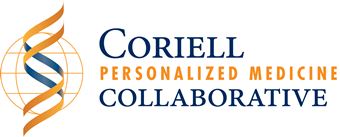 A year after Coriell moved its flagship personalized medicine research study, the Coriell Personalized Medicine Collaborative (or CPMC), from a phase focused on recruitment and participant risk reporting to one focused on analysis and research, CPMC researchers are still making new, interesting discoveries and have published new findings in scientific journals.
A year after Coriell moved its flagship personalized medicine research study, the Coriell Personalized Medicine Collaborative (or CPMC), from a phase focused on recruitment and participant risk reporting to one focused on analysis and research, CPMC researchers are still making new, interesting discoveries and have published new findings in scientific journals.
Coriell launched the CPMC in 2008 on the belief that if people understood their inherent risks for certain diseases, such as diabetes or obesity, they might change their behavior and better their chances of avoiding them. Thousands volunteered, submitted their DNA and answered extensive questions about their lifestyle and family and medical histories which were all analyzed by CPMC scientists.
In return, volunteers received detailed risk reports, based on their genetic makeup and their family history and lifestyle, which they could discuss with their doctors and develop a plan of action if necessary. The CPMC grew to include information about what medications may or may not work for a person based on their genetics.
The CPMC was designed as a 10-year project and, in 2019, recruitment and risk reporting concluded, but the project still has great potential. CPMC scientists are still examining this dataset and learning new things about the ways one’s DNA can influence their health and how to best communicate this complex information.
Using CPMC data, Dara Kusic, PhD, a research scientist at Coriell, and a team of CPMC researchers recently identified a new genetic risk factor for obesity. This genetic variant, found on chromosome 19, can predict if a person is more likely to develop obesity in their lifetime. Their finding was published in the journal Military Medicine at the beginning of the year.
Another paper, this one co-authored by Coriell principal research scientist Laura Scheinfeldt, PhD, explored what information was sought by participants after they received personalized information about drug response. Genetic counseling is an important aspect of the CPMC and as we gain more knowledge about the genetic influences of disease, this counseling will grow more important in clinical care. Genetic risk for disease or how a person’s genetic makeup affects the efficacy of certain drugs is scientifically complex, and this was planned for at the study’s launch. Participants had free access to experts who could help them make sense of their personalized reports.
Published in a special issue of Journal of Personalized Medicine, this study demonstrated that after receiving information about medications, participants often asked questions about the impact of genetics on dosing, other medications they were taking, or for information about sharing these results with clinicians and family members.
Another paper, also co-authored by Dr. Scheinfeldt and focused on the reporting side of personalized medicine, was published recently in a special issue of Patient Education and Counseling. This team used data from the CPMC to test different ways that disease risk was communicated to participants and found that a report combining more than one approach reduced the chance a participant would misunderstood the numerical information presented to them.
The CPMC was an ambitious endeavor when it was launched. Through it, Coriell sought to learn more about the ways in which DNA affects human health and how to share personalized information with people in a way that meaningfully helps them make better, more informed decisions regarding their health. Though the method today is different than when the project began, CPMC scientists continue this mission.